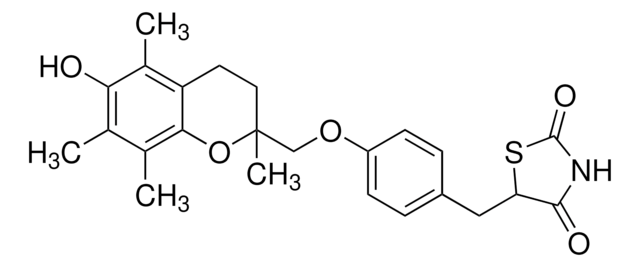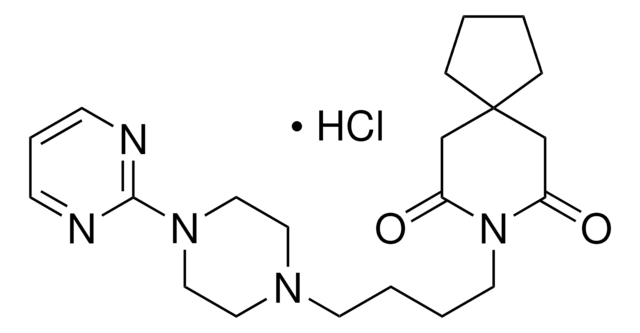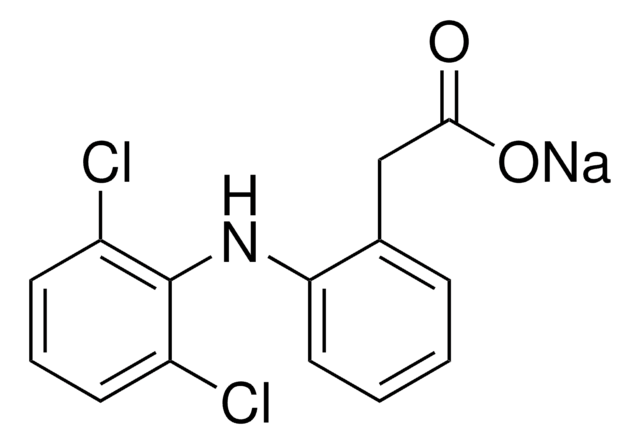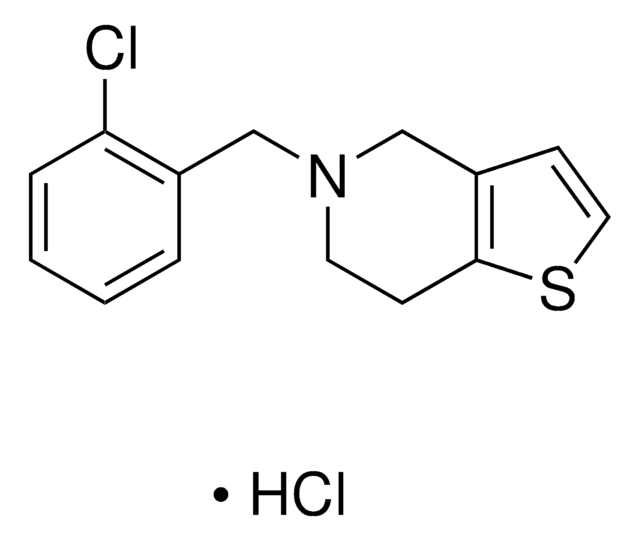Kluczowe dokumenty
N5536
Nefazodone hydrochloride
≥98% (HPLC), solid, selective serotonin reuptake inhibitor
Synonim(y):
2-[3-[4-(3-chlorophenyl)-1-piperazinyl]propyl]-5-ethyl- 2,4-dihydro-4-(2-phenoxyethyl)-3H-1,2,4-triazol-3-one hydrochloride, BMY-13754, MJ-13754-1, Serzone
About This Item
Polecane produkty
Nazwa produktu
Nefazodone hydrochloride, ≥98% (HPLC), solid
Próba
≥98% (HPLC)
Formularz
solid
warunki przechowywania
desiccated
kolor
white
rozpuszczalność
DMSO: ≥10 mg/mL
H2O: insoluble
inicjator
Bristol-Myers Squibb
ciąg SMILES
O=C1N(CCCN2CCN(C3=CC=CC(Cl)=C3)CC2)N=C(CC)N1CCOC4=CC=CC=C4.Cl
InChI
1S/C25H32ClN5O2.ClH/c1-2-24-27-31(25(32)30(24)18-19-33-23-10-4-3-5-11-23)13-7-12-28-14-16-29(17-15-28)22-9-6-8-21(26)20-22;/h3-6,8-11,20H,2,7,12-19H2,1H3;1H
Klucz InChI
DYCKFEBIOUQECE-UHFFFAOYSA-N
informacje o genach
human ... HTR2A(3356) , HTR2C(3358) , SLC6A2(6530) , SLC6A4(6532)
Szukasz podobnych produktów? Odwiedź Przewodnik dotyczący porównywania produktów
Działania biochem./fizjol.
Cechy i korzyści
Kod klasy składowania
11 - Combustible Solids
Klasa zagrożenia wodnego (WGK)
WGK 3
Temperatura zapłonu (°F)
Not applicable
Temperatura zapłonu (°C)
Not applicable
Środki ochrony indywidualnej
Eyeshields, Gloves, type N95 (US)
Wybierz jedną z najnowszych wersji:
Masz już ten produkt?
Dokumenty związane z niedawno zakupionymi produktami zostały zamieszczone w Bibliotece dokumentów.
Klienci oglądali również te produkty
Nasz zespół naukowców ma doświadczenie we wszystkich obszarach badań, w tym w naukach przyrodniczych, materiałoznawstwie, syntezie chemicznej, chromatografii, analityce i wielu innych dziedzinach.
Skontaktuj się z zespołem ds. pomocy technicznej












